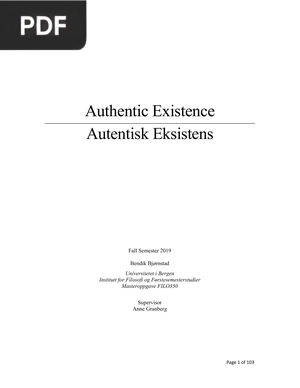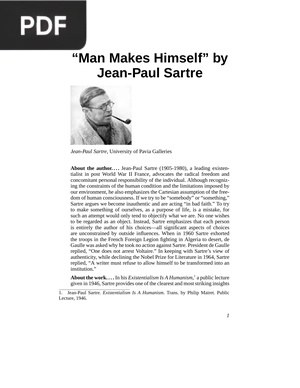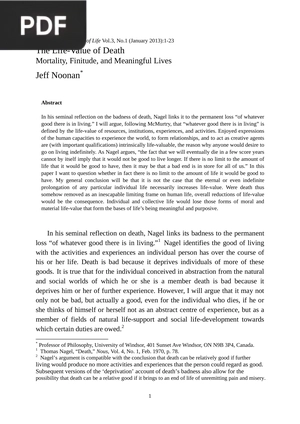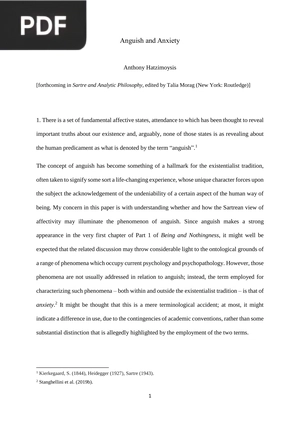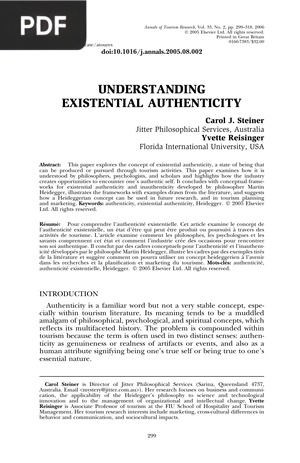What is the Human Being? - Kant’s Theory of Human Nature
Author: Whitman People
*Wait a few seconds for the document to load, the time may vary depending on your internet connection. If you prefer, you can download the file by clicking on the link below.
Information
Description: What is the Human Being? - Kant’s Theory of Human Nature por Whitman People explores existentialist thought in relation to Kantian themes. It offers a valuable perspective on human existence, freedom, and authenticity.
Pages: 54
Megabytes: 0.42 MB
This may interest you
Authentic Existence
Extension: PDF | 103 pages
Authentic Existence by Bendik Bjornstad explores the concept of authentic existence, challenging self-help notions and delving into alienated selfhood. Discover how to dissolve inauthentic mental constructs and rediscover a pre-reflective mode of being, relating it to brain science.
Man Makes Himself
Extension: PDF | 25 pages
Man Makes Himself by Jean-Paul Sartre presents a clear explanation of existentialism. It explores freedom, responsibility, and the absence of pre-defined human nature, offering a profound perspective on the human experience.
The Life-Value of Death Mortality, Finitude, and Meaningful Lives
Extension: PDF | 23 pages
The Life-Value of Death Mortality, Finitude, and Meaningful Lives por Jeff Noonan explores the philosophical arguments around death, mortality, and their impact on the meaning of life. It argues that understanding death's finitude enhances our appreciation for life's values and actions.
Anguish and Anxiety
Extension: PDF | 21 pages
Anguish and Anxiety by Anthony Hatzimoysis explores the philosophical distinctions between anguish and anxiety, particularly through the lens of Sartre's existentialism. It offers a nuanced perspective on these fundamental human experiences, inviting readers to reconsider their understanding.
Understanding existential authenticit
Extension: PDF | 20 pages
Understanding existential authenticity by Carol J. Steiner and Yvette Reisinger explores the pursuit of authenticity through tourism, examining philosophical and psychological perspectives. This paper is valuable for its conceptual frameworks on authenticity and inauthenticity, offering insights for tourism planning and research.


